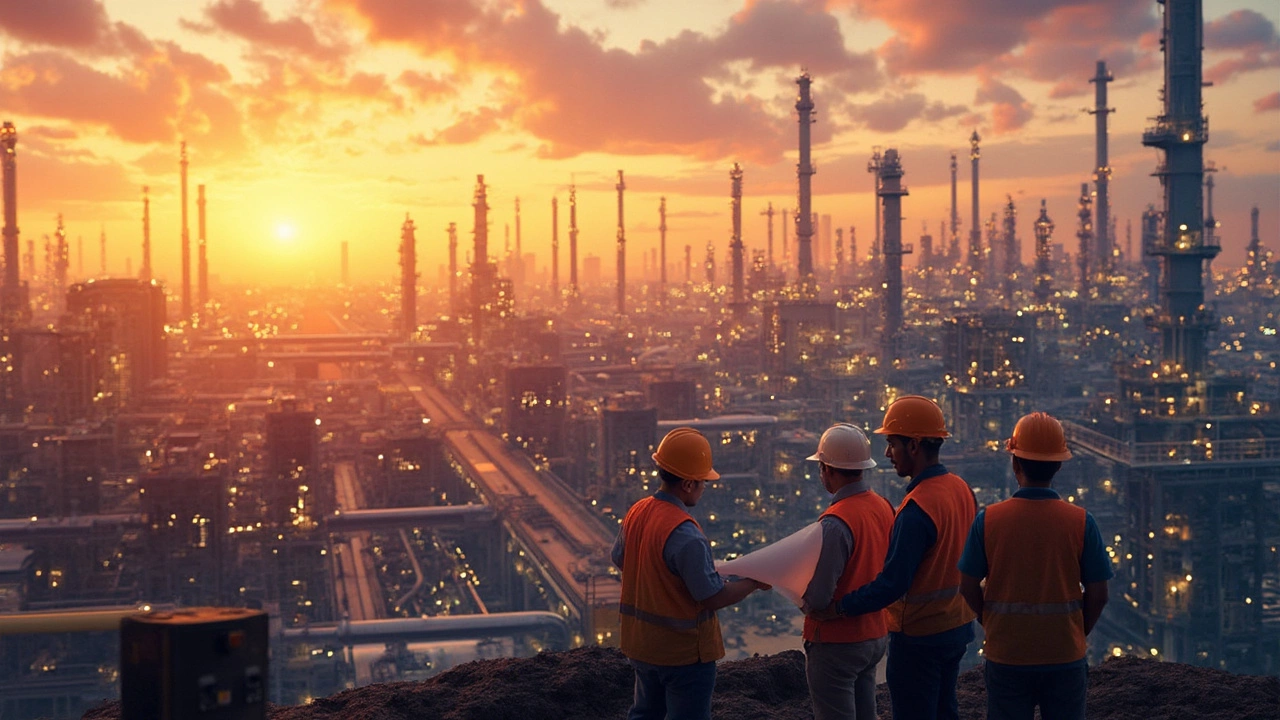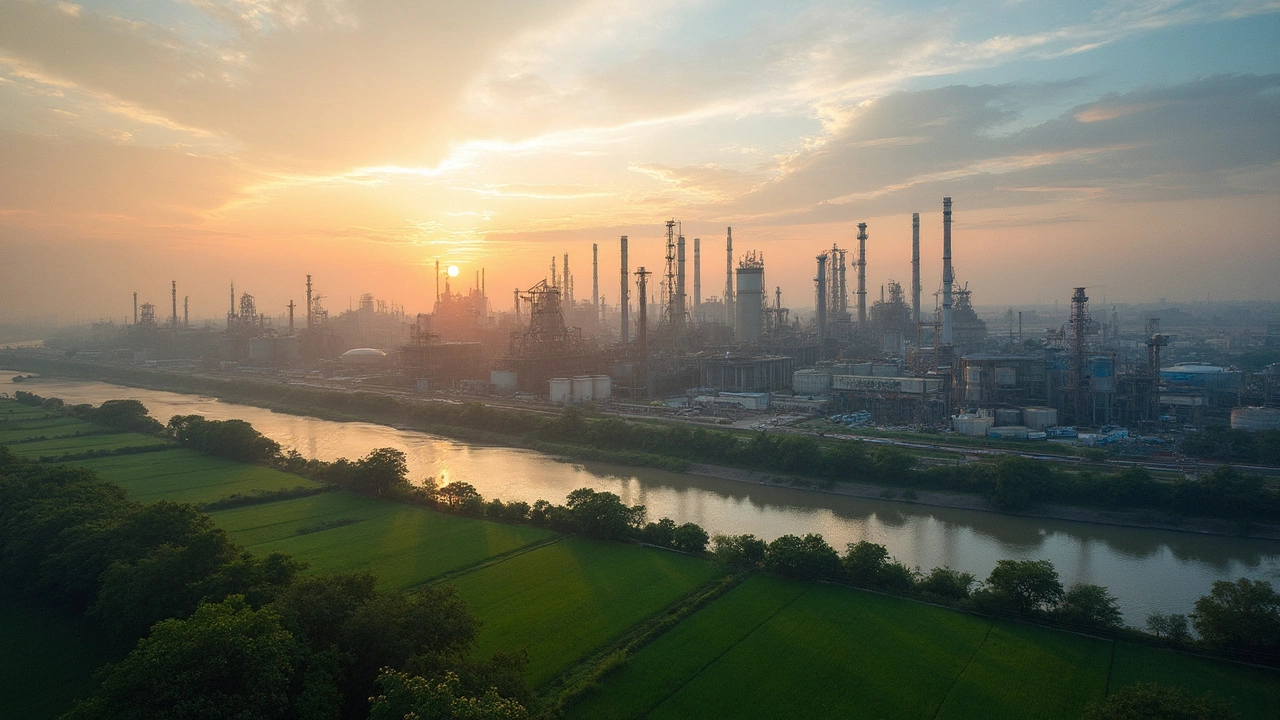Chemical Manufacturers in India: Who’s Leading and What’s Driving Growth
India’s chemical sector is booming, and you’ll hear the name "chemical manufacturers" everywhere—from news headlines to supply‑chain talks. So, which companies are really moving the needle, and why should you care? Whether you’re a buyer looking for reliable partners, an entrepreneur scouting entry points, or just curious about the industry’s vibe, this guide gives you the practical facts you need right now.
Major Players Shaping the Indian Chemical Landscape
Big names dominate the scene, but they’re not the only options. Reliance Industries, with its massive petrochemical complex, pumps out everything from polymers to specialty chemicals. Tata Chemicals focuses on soda ash, fertilizers, and a growing line of eco‑friendly products. UPL and Navin Fluorine are leaders in agro‑chemicals, serving both domestic farms and export markets. On the specialty side, Aarti Industries and Granules India provide high‑value intermediates used in pharma and cosmetics.
What sets these firms apart? Scale, advanced R&D labs, and strong ties to government incentives. Most of them operate integrated plants that turn raw crude into finished products on the same site, cutting logistics costs and boosting reliability. If you need a one‑stop solution, these integrated giants are worth a call. For niche needs, boutique specialists often offer quicker lead times and more customization.
Key Trends and Opportunities for New Entrants
Three trends are reshaping the market right now. First, the push for green chemistry is real—companies are investing in bio‑based polymers, low‑VOC solvents, and circular‑economy models. Second, the government’s "Make in India" and chemical‑focused schemes provide tax breaks, land grants, and faster clearances for new plants, especially in designated clusters like Gujarat and Tamil Nadu. Third, export demand for specialty chemicals is rising, driven by Asian tech hubs that need high‑purity compounds for batteries, electronics, and pharma.
For a startup, the sweet spot often lies in niche specialty chemicals that larger players overlook. Think of additives for water treatment, custom pigments for the textile industry, or biodegradable surfactants for cleaning products. Because the capital outlay is lower than building a full‑scale petrochemical complex, you can get up and running faster—sometimes within 12‑18 months.
Don’t forget the importance of certifications. ISO 9001, ISO 14001, and specific industry approvals (like US FDA for pharma‑grade intermediates) open doors to high‑margin contracts. Aligning your product roadmap with these standards early on saves time and money down the line.
Finally, keep an eye on digital tools. ERP systems, AI‑driven demand forecasting, and remote monitoring are no longer optional. They help small manufacturers match the efficiency of larger rivals, reduce waste, and respond to market shifts in real time.
In short, India’s chemical manufacturing arena is diverse and full of chances. Big integrated firms dominate the base, but there’s plenty of room for specialists who can meet the growing demand for greener, higher‑value chemicals. Tap into government incentives, get the right certifications, and leverage technology to stay competitive. Ready to explore a partnership or launch your own venture? The data is clear—opportunity is waiting.

Largest Chemical Company in Asia: The Giant Behind India’s Booming Industry
Curious who dominates Asia’s chemical industry? This article digs into the largest chemical company in Asia, spotlighting its reach, reasons for its success, and ties to India’s fast-growing industry. It breaks down how this chemical giant stacks up against global players and what makes its influence huge in India. Discover facts you won’t find in basic industry lists, along with tips for businesses and professionals on collaborating with such giants. This read is for anyone interested in the heart of Asia’s chemical sector.
Read More
How Big is the Indian Chemical Industry?
The Indian chemical industry is massive, contributing significantly to the global chemical market. Known for its diverse range of products, this sector is continuously expanding, both in size and innovation. Growth opportunities are abundant due to factors like increasing domestic demand and considerable exports. Let's explore the scale, key players, and the future potential of India's chemical industry.
Read More
Discover India's Hub for the Chemical Industry: Vadodara
When it comes to the chemical industry in India, Vadodara stands as a significant player. Known for its strong industrial base, the city hosts numerous chemical manufacturing companies. Vadodara's location and infrastructure make it ideal for large-scale chemical production. Whether you're a business looking to source chemicals or a student researching industrial cities, Vadodara's role in the chemical sector offers valuable insights.
Read More